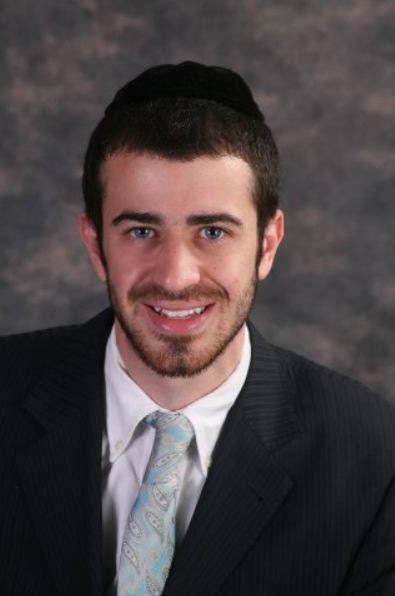Researching the Cure
Aryeh Grossman’s dedication to fighting cancer through biology

Aryeh Grossman was always drawn to medicine and helping others, but when his grandmother passed away from cancer, he turned his focus toward a hopeful future in oncology. “That was one of the things,” Grossman says of his motivation to battle the disease, adding that in general, “You see it on a daily basis and hear about it, so it’s the field I’ll probably be interested in.”
The Flatbush, Brooklyn resident is off to a fine head start. Having graduated from Touro’s Lander College of Arts and Sciences in 2010 with an Honors degree in biology, he’s currently in the process of applying to a range of medical schools, while giving back to his alma mater as a student tutor. He also spent time post-undergrad in Israel, working with an international response team. During his coursework, Grossman had the opportunity to assist hands-on in oncology research at SUNY’s Downstate Medical Center. “That was fascinating,” he recalls. “It was research on these molecules that actually kill cancer cells.”
That experience was a natural extension of his most well-publicized academic achievement. In 2009, Grossman and five other biology enrollees, along with Professor Milton Schiffenbauer, discovered compounds in tea that are capable of fighting off bacterial microbes. The group was even invited to that year’s American Society for Microbiology to present their work among peers. “[That] showed me how research can open up opportunities and provide insight,” he says, emphasizing that “a lot of new advances begin from research.”
Grossman is also highly conscious of the other component in medicine, one that can’t be taught as part of a problem-solving curriculum: compassion and composure under pressure. One of his earliest encounters with a real hospital emergency was helping attend to a young girl who’d been run over by a bus. Ironically, the focus he’d grown accustomed to in a lab or classroom helped him be a steady influence amidst the crisis. “The girl’s mother fainted,” he remembers. “I guess I just focused on trying to grasp the problem and do whatever I could. I quickly used my skills to stabilize the situation.” He subsequently kept in touch with the patient and visited her until she healed, and even met with her and her parents afterwards.
Looking ahead toward a career in oncology, Grossman knows the flipside of saving lives or mitigating injury is the possibility of your best sometimes not being enough. “As much as you want to do everything in your power, you want to do whatever it takes to actually cure them, one big obstacle is there are still times when you won’t be successful or still times when the cancer is malignant,” he explains matter-of-factly. But Grossman remains undeterred, hoping that several years into his future, he can help chip away at the epidemic of cancer and simply ensure people live longer and healthier lives. “The main thing is to feel that I’m able to help people and improve their well-being,” he affirms. It’s a very accomplished feeling, that you can actually make a big difference in people’s lives. That’s gratifying—turning a whole situation around by focusing on the task and using your skills.”

